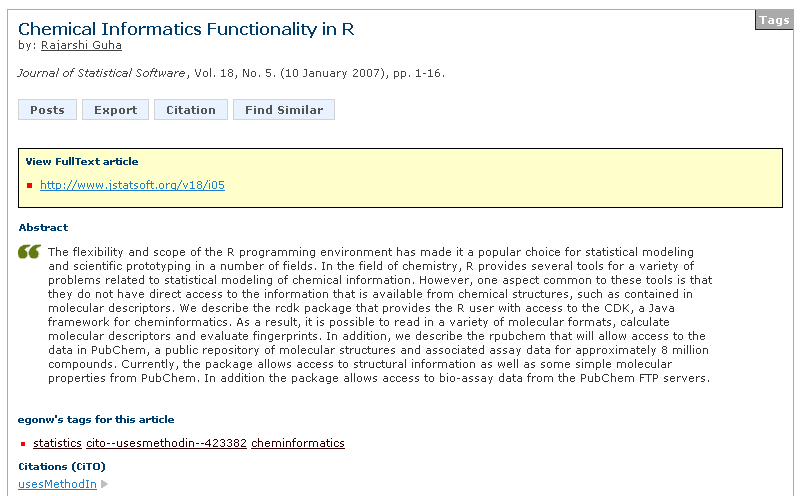
One of the most important need for a publisher is to categorising each bibliographic entity it produces by adding free-text keywords and/or specific terms structured according to recognised classification systems and/or thesauri specific for certain academic disciplines. Academics have the same need when annotating bibliographic references.





